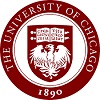Job Description
So great are UChicago’s contributions in economics that an entire school of thought is associated with the University’s name. Since the Nobel Memorial Prize in Economic Sciences was first awarded in 1969, 34 recipients have been affiliated with Chicago as faculty, researchers, or students. Today, undergraduates learn from economists whose research includes game theory, economic models of crime, the economics of sports, and the Great Depression. The faculty’s reputation, according to the National Research Council, is first among 107 economics programs in the nation. Most recently, Professor Kevin Murphy received a MacArthur “Genius” grant for “revealing economic forces shaping vital social phenomena.”
The program in economics is intended to equip students with the basic tools to understand the operation of a modern economy: the origin and role of prices and markets, the allocation of goods and services, and the factors that enter into the determination of income, employment, and the price level. Students can satisfy the requirements of the BA in economics in the standard track, the specialization in data science, or the specialization in business economics. The specialization in data science provides training in computation and data analysis beyond the basic methods discussed in the empirical methods sequence. The specialization in business economics is organized around the fundamental economic theory and empirical methods that students interested in pursuing careers in the private sector, the non-profit sector, and the public sector (among others) will find useful.
The curriculum covers price theory and macroeconomics, economic history, econometrics, mathematics, and calculus, as well as a wide range of other topics: environmental economics, health economics and public policy, and public choice, for example. Internships and research positions in the Department of Economics, University of Chicago Booth School of Business, and NORC (formerly the National Opinion Research Center) are encouraged.



